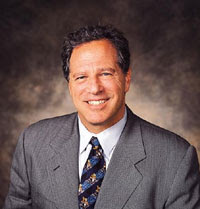Klein, who is president of Americans for Cures, said he had "great personal respect" for Sen. Sheila Kuehl, D-Santa Monica, the object of the attack. Kuehl, a respected California lawmaker and chair of the state Senate Health Committee, drew the ire of Americans for Cures because of her legislation aimed at ensuring affordable access to taxpayer-financed stem cell therapies.
In a statement to the California Stem Cell Report, Klein praised Kuehl's "intellectual strength" and leadership. Here is the text of what Klein sent the California Stem Cell Report:
"Dear David,
"Theoretically, I have been on vacation since Tuesday morning, July 8th, but I gave up my vacation last night and came back to CIRM to deal with misinformation regarding my personal position on SB 1565. As I stated at the Controller’s financial oversight committee meeting on Monday, July 7th, I have great personal respect for Senator Kuehl, including most recently her leadership on the effort to create universal healthcare coverage. On Monday, I made it clear that I have deep respect for her intellectual strength in the healthcare area, and that the ICOC’s position is a substantive policy disagreement. The ICOC has taken the position that the complexity of the stem cell therapy area may not permit simple pricing formulas and the agency needs discretion in adapting to the 70 areas of possible stem cell therapies for chronic disease and injury. I also emphasized on Monday that the ICOC is committed to the same goals as Senator Kuehl in obtaining the lowest possible price for state and local government public providers in California.
"The language in the bill addressing embryonic stem cell research, I think, is being interpreted very differently by the ICOC and Senator Kuehl. We are very concerned about the message this type of an amendment would send within California and nationally, and we do not believe that the message would be consistent with the best scientific and medical knowledge at this time.
"As always, I am happy to discuss this with you further. I wanted to make sure you knew right away that I was completely unaware of the blog entry. I have requested that the Daily Kos entry associated with Americans for Cures be deleted from the site because it did not receive clearance from senior members of the organization, and it did not properly reflect the organization’s views on Senator Kuehl.
"Bob Klein"


